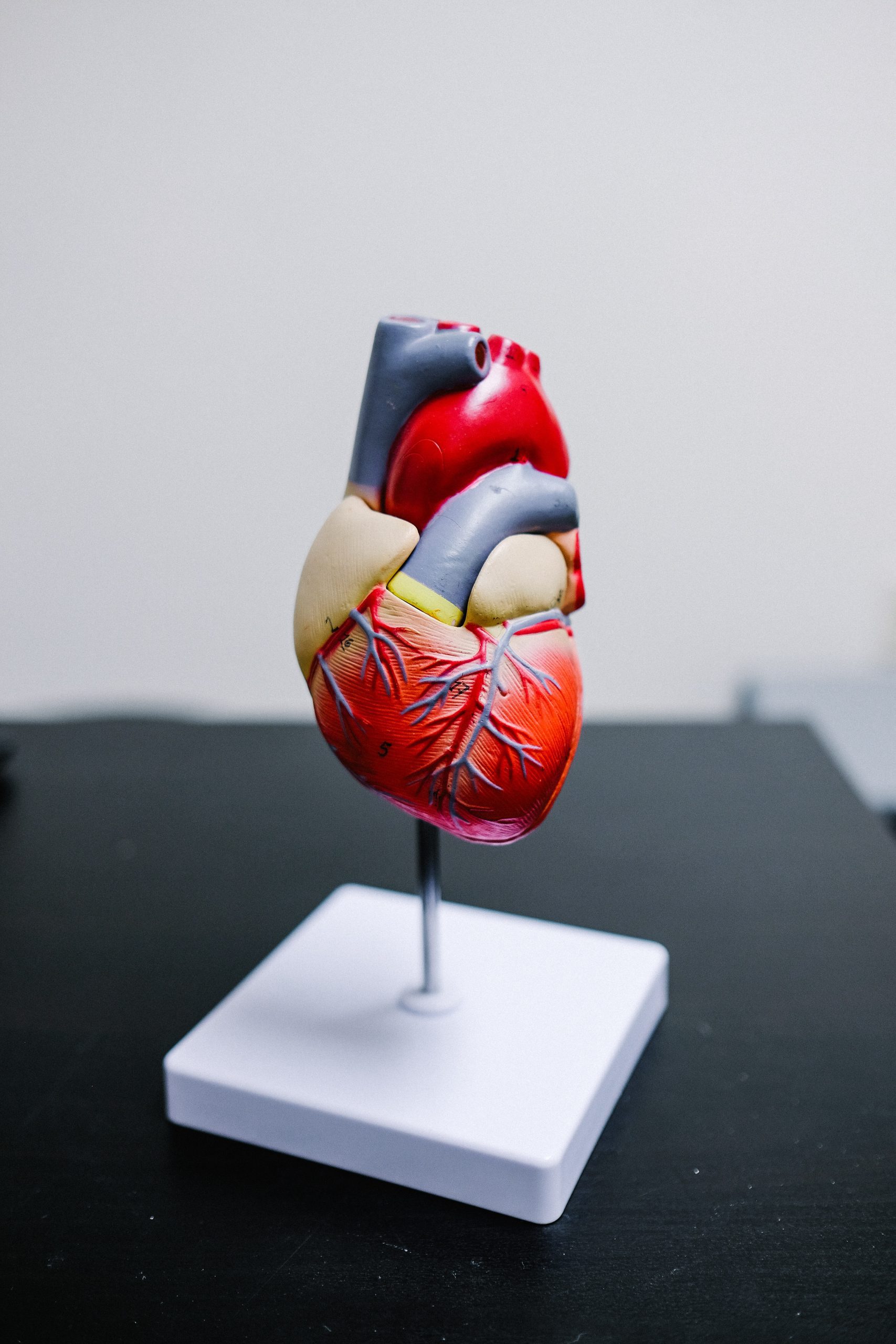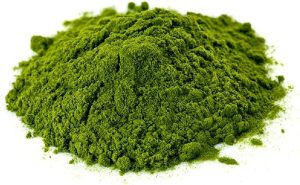
- Overview of Cholesterol
- Brief History of Cholesterol
- Functions of Cholesterol
- Recommended Daily Intake (RDI), Recommended Dietary Allowance (RDA), Adequate Intake (AI), or Reference Nutrient Intake (RNI) for Cholesterol
- Deficiency of Cholesterol
- Food Sources of Cholesterol and Where to Get It From
- Cholesterol and Its Interaction with Other Medications
- Websites and Articles to Delve into the Benefits of Cholesterol
- Disclaimer
Overview of Cholesterol
Cholesterol is a vital lipid present in cell membranes and a precursor to essential hormones. It is categorized into low-density lipoprotein (LDL) and high-density lipoprotein (HDL).
LDL cholesterol, often termed “bad” cholesterol, can accumulate in arteries, contributing to atherosclerosis and heart disease. Conversely,
HDL cholesterol, or “good” cholesterol, aids in removing LDL cholesterol from the bloodstream. While the body produces cholesterol, dietary intake influences overall levels.
High cholesterol levels are associated with cardiovascular risks, emphasizing the importance of a balanced diet, regular exercise, and lifestyle modifications. Monitoring cholesterol levels is critical for preventing heart-related conditions, with medical interventions and medications available for managing imbalances.
Brief History of Cholesterol
The history of cholesterol research dates back to the 18th century, but the understanding of its role in health and disease evolved significantly over time. Here is a brief history:
- Discovery of Cholesterol (18th Century):
- Cholesterol was first discovered in gallstones by François Poulletier de la Salle in 1769. It was later named “cholesterine” by chemist Michel Eugène Chevreul in 1815.
- Identification in Animal Tissues (19th Century):
- In the 19th century, researchers identified cholesterol in animal tissues, emphasizing its widespread presence in living organisms.
- Role in Atherosclerosis (20th Century):
- In the early to mid-20th century, scientists, including Ancel Keys, began linking cholesterol levels to atherosclerosis and cardiovascular diseases.
- Lipoprotein Discovery (20th Century):
- The discovery of low-density lipoprotein (LDL) and high-density lipoprotein (HDL) in the mid-20th century refined the understanding of cholesterol transport and metabolism.
- Cholesterol Guidelines and Medications (Late 20th Century):
- Guidelines for managing cholesterol levels emerged in the late 20th century, and statin medications were developed to lower cholesterol, becoming widely prescribed for cardiovascular health.
- Cholesterol and Genetics (21st Century):
- Advances in genetic research have provided insights into the genetic basis of cholesterol metabolism and its impact on individual health.
Today, cholesterol remains a focal point in preventive cardiology, with ongoing research aiming to better understand its nuanced role and develop targeted therapies for cardiovascular health.
Functions of Cholesterol
Cholesterol is a type of lipid (fat) that is essential for the normal functioning of the body. It is a crucial component of cell membranes and plays various roles in maintaining overall health. Here are some of the key functions of cholesterol in the body:
- Cell Membrane Structure:
- Cholesterol is a major component of cell membranes, where it helps maintain their structural integrity and fluidity.
- It regulates the fluidity of the cell membrane, ensuring that the membrane remains stable and functional.
- Hormone Synthesis:
- Cholesterol is a precursor for the synthesis of steroid hormones, including cortisol, aldosterone, estrogen, progesterone, and testosterone.
- These hormones play critical roles in various physiological processes, such as metabolism, stress response, and reproductive functions.
- Vitamin D Synthesis:
- Cholesterol is converted into vitamin D in the skin when exposed to sunlight (UVB radiation).
- Vitamin D is essential for the absorption of calcium and phosphorus in the intestines, promoting bone health.
- Bile Salt Production:
- Cholesterol is a precursor for the synthesis of bile salts in the liver.
- Bile salts aid in the digestion and absorption of dietary fats and fat-soluble vitamins in the small intestine.
- Neurological Function:
- Cholesterol is present in high concentrations in the brain and is crucial for the formation and function of synapses, which are essential for nerve signal transmission.
- It is involved in the production of myelin, a fatty substance that insulates nerve fibers and facilitates efficient nerve impulse conduction.
- Cell Signaling:
- Cholesterol is involved in various signaling pathways within cells.
- It plays a role in the activation of certain proteins and receptors that are essential for cell communication and signal transduction.
- Antioxidant Properties:
- Cholesterol can act as an antioxidant, protecting cells from oxidative damage.
- It may help neutralize free radicals and reduce oxidative stress in the body.
While cholesterol is essential for these functions, it is important to note that an imbalance, particularly elevated levels of low-density lipoprotein (LDL) cholesterol, can contribute to atherosclerosis and cardiovascular diseases. Maintaining a balance in cholesterol levels is crucial for overall health, and lifestyle factors such as diet and exercise play a significant role in achieving this balance.
Recommended Daily Intake (RDI), Recommended Dietary Allowance (RDA), Adequate Intake (AI), or Reference Nutrient Intake (RNI) for Cholesterol
Recommended Daily Intake (RDI), Recommended Dietary Allowance (RDA), Adequate Intake (AI), or Reference Nutrient Intake (RNI) for cholesterol are not yet established. The reason for this is that the body can synthesize its own cholesterol, and therefore, there is no strict requirement for obtaining it through the diet.
However, it’s important to note that recommendations regarding dietary cholesterol have evolved over the years. In the past, there were concerns about the potential impact of dietary cholesterol on blood cholesterol levels and heart health. As a result, dietary guidelines often recommended limiting the intake of dietary cholesterol.
More recent research suggests that for the majority of healthy individuals, dietary cholesterol intake may have a relatively modest impact on blood cholesterol levels compared to other factors such as saturated and trans fats in the diet. Consequently, some dietary guidelines have been adjusted to reflect this.
It’s always a good idea to stay informed about the latest dietary recommendations, and individuals with specific health conditions or concerns should consult with healthcare professionals or registered dietitians for personalized advice.
Deficiency of Cholesterol
Cholesterol deficiency is a rare condition because the body can produce its own cholesterol, and dietary sources of cholesterol are widely available. However, there are certain genetic disorders and medical conditions that can lead to lower-than-normal levels of cholesterol in the body. It’s important to note that these conditions are uncommon, and most people do not need to worry about cholesterol deficiency. Here are some situations that can be associated with lower cholesterol levels:
- Smith-Lemli-Opitz Syndrome (SLOS):
- This is a rare genetic disorder that affects cholesterol synthesis. Individuals with SLOS have mutations in the DHCR7 gene, which leads to a reduced ability to produce cholesterol. This condition can result in a range of developmental and physical abnormalities.
- Abetalipoproteinemia:
- Abetalipoproteinemia is a rare genetic disorder characterized by the absence of beta-lipoproteins, which are necessary for transporting cholesterol and fats in the blood. Individuals with this condition may have extremely low levels of cholesterol.
- Malabsorption Disorders:
- Certain malabsorption disorders, such as Crohn’s disease or celiac disease, can impact the absorption of dietary fats, including cholesterol. This can lead to lower cholesterol levels in the body.
- Liver Disorders:
- Liver diseases that affect cholesterol synthesis or metabolism may result in lower cholesterol levels. The liver is a primary site for cholesterol production in the body.
It’s important to note that having lower cholesterol levels due to a medical condition is not necessarily a positive or negative outcome on its own. Cholesterol plays vital roles in the body, and its levels are tightly regulated. Extremely low cholesterol levels, however, may have implications for certain biological functions, including hormone synthesis and neurological health.
For most people, maintaining a balanced and healthy diet, along with regular medical check-ups, is sufficient to ensure appropriate cholesterol levels. If you suspect a medical condition or have concerns about your cholesterol levels, it is recommended to consult with a healthcare professional for proper evaluation and guidance.
Food Sources of Cholesterol and Where to Get It From
Cholesterol is found in animal-based foods, and it is not present in significant amounts in plant-based foods. If you’re looking to incorporate cholesterol into your diet, here are some common food sources:
- Eggs:
- Eggs are a well-known source of cholesterol. The yolk contains the majority of the cholesterol found in an egg.
- Meat:
- Red meat, poultry, and various cuts of meat contain cholesterol. Organ meats, such as liver, are particularly high in cholesterol.
- Seafood:
- Fish and shellfish are good sources of cholesterol. Examples include salmon, shrimp, lobster, and crab.
- Dairy Products:
- Whole milk, cheese, and butter are examples of dairy products that contain cholesterol. However, it’s essential to note that dairy products also contain saturated fats.
- Poultry:
- Chicken and turkey are sources of cholesterol. However, the cholesterol content in poultry is generally lower than in red meat.
- Processed Foods:
- Some processed foods, especially those made with animal fats, may contain cholesterol. This includes certain types of processed meats and high-fat snack foods.
It’s important to be mindful of your overall dietary choices, as many cholesterol-containing foods are also high in saturated and trans fats. These types of fats can have a more significant impact on blood cholesterol levels than dietary cholesterol alone. For individuals aiming to manage their cholesterol levels, it’s often recommended to focus on a balanced diet that includes:
- Fruits and Vegetables:
- Rich in fiber, antioxidants, and various nutrients.
- Whole Grains:
- Provide complex carbohydrates and fiber.
- Lean Proteins:
- Include sources such as beans, lentils, tofu, and lean cuts of poultry or fish.
- Healthy Fats:
- Choose sources of unsaturated fats, such as avocados, nuts, seeds, and olive oil.
Remember that dietary guidelines may vary based on individual health conditions and goals. If you have concerns about cholesterol levels or other aspects of your diet, it’s advisable to consult with a healthcare professional or a registered dietitian for personalized guidance.
Cholesterol and Its Interaction with Other Medications
Cholesterol-lowering medications, such as statins, fibrates, and bile acid sequestrants, are commonly prescribed to manage high cholesterol levels. It’s important to be aware of potential interactions between cholesterol medications and other drugs, as well as their impact on various health conditions. Here are some key considerations:
- Statins:
- Interactions: Statins, such as atorvastatin, simvastatin, and rosuvastatin, can interact with certain medications, including those metabolized by the same liver enzyme system. Common interactions may occur with drugs like some antifungal medications, antibiotics, and certain heart medications.
- Grapefruit Juice: Grapefruit juice can enhance the effects of some statins, leading to an increased risk of side effects. It’s advisable to avoid large quantities of grapefruit juice while taking statins.
- Fibrates:
- Interactions: Fibrates, like fenofibrate and gemfibrozil, may interact with certain medications, including anticoagulants (blood thinners) and some statins. Combining fibrates with statins can increase the risk of muscle-related side effects.
- Bile Acid Sequestrants:
- Interactions: Bile acid sequestrants, such as cholestyramine and colesevelam, may interfere with the absorption of other medications. It’s essential to take other medications at least one hour before or four hours after taking bile acid sequestrants.
- Ezetimibe:
- Interactions: Ezetimibe is a medication that reduces the absorption of cholesterol in the small intestine. It is often prescribed in combination with statins. Ezetimibe has a relatively low potential for interactions, but it’s crucial to inform your healthcare provider about all medications you are taking.
- PCSK9 Inhibitors:
- Interactions: PCSK9 inhibitors, such as evolocumab and alirocumab, are injectable medications used to lower cholesterol. They are generally well-tolerated, but it’s essential to discuss all medications with your healthcare provider.
Before starting any new medication, including cholesterol-lowering drugs, it’s crucial to inform your healthcare provider about all medications, supplements, and over-the-counter drugs you are taking. This helps your healthcare provider identify potential interactions and make appropriate adjustments to your treatment plan.
Additionally, lifestyle factors such as diet and alcohol consumption can also impact the effectiveness and safety of cholesterol medications. Always follow your healthcare provider’s guidance and attend regular check-ups to monitor your cholesterol levels and overall health.
Websites and Articles to Delve into the Benefits of Cholesterol
While cholesterol is often associated with concerns about heart health, it’s crucial to recognize that cholesterol is essential for various physiological functions in the body. If you’re interested in exploring the benefits of cholesterol and gaining a more comprehensive understanding of its roles, you may find the following websites and articles helpful:
- American Heart Association (AHA):
- Website: American Heart Association
- The AHA provides information on heart health, cholesterol, and related topics. You can explore their resources to understand both the risks and benefits of cholesterol.
- Harvard Health Publishing:
- Website: Harvard Health Publishing
- Harvard Health Publishing offers a range of articles on cholesterol and cardiovascular health. They often provide evidence-based insights into various health topics.
- National Institutes of Health (NIH):
- Website: National Heart, Lung, and Blood Institute (NHLBI)
- The NHLBI, part of the NIH, has resources on heart health, cholesterol, and related research. You can find valuable information on cholesterol functions and its impact on health.
- Mayo Clinic:
- Website: Mayo Clinic
- Mayo Clinic offers comprehensive health information, including articles on cholesterol, heart disease, and overall wellness. Their materials are often written in a reader-friendly format.
- PubMed – National Library of Medicine:
- Website: PubMed
- For more in-depth research articles and studies, you can explore PubMed. It is a database of scientific articles, and searching for terms related to “cholesterol benefits” can yield scholarly information.
- WebMD:
- Website: WebMD
- WebMD provides health information, including articles on cholesterol and its various aspects. It’s a good resource for accessing information in a user-friendly format.
Always ensure that the information you read is from reputable sources, and consider consulting with healthcare professionals or registered dietitians for personalized advice, especially if you have specific health concerns or conditions. Additionally, stay informed about the latest research and updates in the field of cardiovascular health.
Disclaimer
The information is solely provided for educational purposes. It is not intended to diagnose, treat, cure, or prevent any disease. Seek the advice of your physician or qualified healthcare provider with any questions you may have regarding a medical condition at all times. Never disregard professional medical advice because of something you have read or learned from this article.






